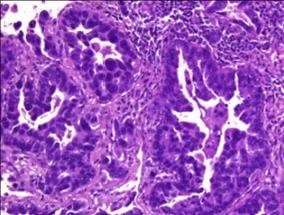
Credit: IDIBELL
The invention of the EPICUP® epigenetic test last year allowed physicians to elucidate what type of primary tumor had metastasized in patients with Cancer of Unknown Primary (CUP). Today, an article published in Nature Reviews Clinical Oncology by Dr. Manel Esteller, coordinator of the Epigenetics and Cancer Biology Program of the Bellvitge Biomedical Research Institute (IDIBELL), ICREA Researcher and Professor of Genetics at the University of Barcelona, explains how this test is being transferred to the clinical practice and the new advances that can develop from it.
" Traditional methods can only detect the primary tumor in 30% of cases of metastases of unknown origin. Some molecular methods could increase this percentage, but they are often expensive and use the RNA molecule (ribonucleic acid), which is very fragile and is often easily broken down in the samples available in the pathological anatomy services of hospitals", Dr. Manel Esteller explains.
"The EPICUP® test, on the other hand, is based on the DNA molecule, which is very stable, so it can be sent from the hospital where the patient is to the analysis laboratory in a simpler way. The results can be obtained in a week " adds the researcher.
Cancer of Unknown Primary (CUP) represents 10% of those human tumors in which metastasis is detected, but the primary tumor cannot be located despite several exploratory tests. Since the tumor type is not known, the survival of these patients is very low; the implementation of the EPICUP® test will lead to the development of more specific treatments in the future, according to the results presented in Nature Reviews Clinical Oncology: "Prospective trials are now needed to determine how these CUP patients, now correctly diagnosed, can benefit from more specific and less aggressive treatments for their disease" Dr. Esteller concludes.
###
Media Contact
Gemma Fornons
[email protected]
34-932-607-825
@idibell_en
Related Journal Article
http://dx.doi.org/10.1038/nrclinonc.2017.97





